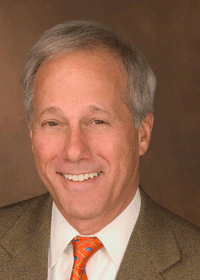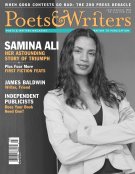When John Barr was named president of the Poetry Foundation six months ago, most poets in the country were asking themselves, “John who?” Although Barr has published six books of poetry and served on the board of directors of Yaddo as well as that of the Poetry Society of America, many poets had never heard of him. His long career as an investment banker on Wall Street hadn’t raised his literary profile either. The worlds of high finance and poetry are totally unrelated. Not anymore. In 2002, Ruth Lilly’s unprecedented financial gift—$100 million over the next 30 years—to the Poetry Foundation, formerly the Modern Poetry Association, changed all that. Suddenly poets are paying attention to what an investment banker has to say.

And, like any good investment banker, Barr is quick to put the Poetry Foundation’s financial situation into perspective. Compared with the annual budget of the NEA, which has been over $100 million for the last four years, the Poetry Foundation’s gift—to be paid incrementally over 30 years—is relatively modest. As Barr says, next to wealthy foundations like the Gates Foundation or the Rockefeller Foundation, “I feel like we’re the five-foot-two-inch high school tackle who is on his tiptoes trying to get into the high school yearbook.” But for an organization devoted solely to poetry, it might just be the largest literary endowment in history.
Barr and his colleagues at the Poetry Foundation are currently developing strategies for structuring the organization and creating programs that will meet the needs of the poetry community. Barr is already clear about one crucial point: The Poetry Foundation will not be a grant-giving organization. Instead, he hopes to create joint ventures with other organizations; build new in-house programs, such as prizes and awards for poets; develop electronic media projects; and, perhaps most important, support the 92-year-old Poetry magazine. “Whatever they want,” Barr says, “they get.”
Barr sees the growth of the magazine’s readership as just one of the ways in which the Poetry Foundation can expand the audience for the genre; another likely target will be the American educational system. “The key is to get some good poetry in front of students,” he says. The Poetry Foundation has not implemented any new initiatives since receiving the money, but Barr plans to “have some projects launched and some announcements out there in the marketplace” by December. “I think a year of silence is probably not a great idea,” he says, knowing that poets everywhere are awaiting the foundation’s first move.
Money aside, Barr believes poets can reach a broader audience by writing for a broader audience. “There is more conscious work that can be done by writers to reflect, embody, and digest a bigger body of experience and work that into their own work. My example is Ernest Hemingway. In 1933 he took his first safari…he shot lions and went home and wrote about it: The Snows of Kilimanjaro, ‘The Short Happy Life of Francis Macomber,’ True at First Light, an unfinished novel. I don’t know of a lot of poets who do that.
“Somehow, I think unconsciously, poets have inherited the attitude that they are going to wait for the muse to come to them, that they’re going to wait for the lightning to strike, that they are, in effect, passive witnesses of what is around them. This shows up in academia, where you get poems about writing poems.”
While Barr admits there is “great” poetry that comes out of the academic world, he says “we might get a broader experience base in poetry if people did things other than teach and write. The relationship between how we live and what we write seems to me underappreciated among a lot of poets writing today. I think if poetry doesn’t aerate itself in a more effective, broader way occasionally, it becomes self-referential—not my term, but a good term to describe poetry that gets a bit of a hothouse feel to it.”
Kevin Larimer is the associate editor of Poets & Writers Magazine.








